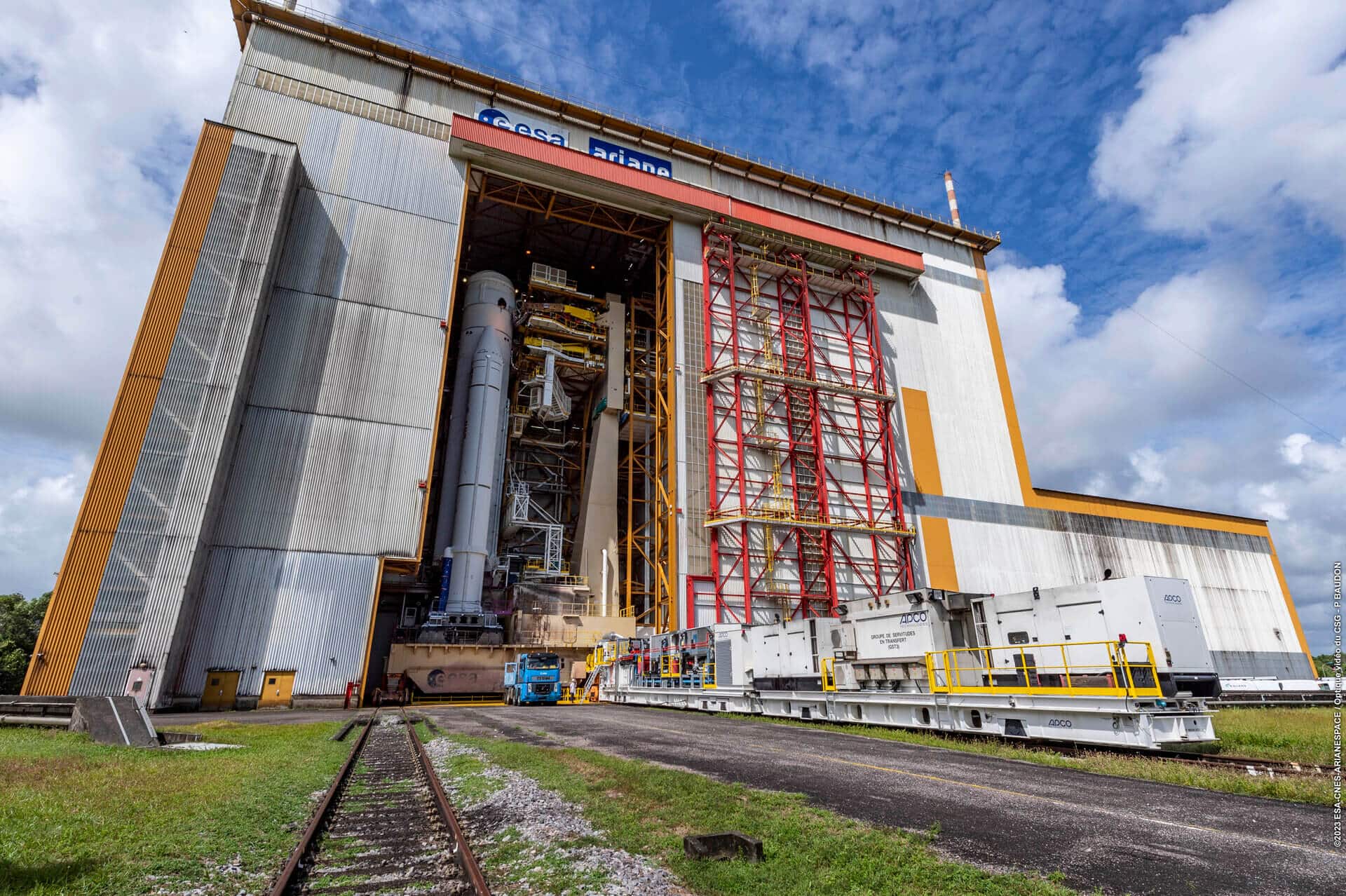The reason for the delay: fear of lightning storms. The Juice spacecraft (JUPiter ICy moons Explorer), is a joint project of the European Space Agency (ESA) and the Italian Space Agency (ASI), planned to explore three of Jupiter's icy moons: Ganymede, Europa and Callisto. The mission is scheduled to reach Jupiter in 2031
If all goes well, the Juice spacecraft (JUPiter ICy moons Explorer), a joint project of the European Space Agency (ESA) and the Italian Space Agency (ASI), will be launched today at 15:15 Israel time, with the aim of exploring three of Jupiter's icy moons: Ganymede, Europa and Callisto. The mission is scheduled to reach Jupiter in 2031.
The main goal of the $XNUMX billion JUICE mission is to explore these moons and assess their potential to support life. Moons are believed to have underground oceans that may contain liquid water and possibly even microbial life. The spacecraft will use a battery of scientific instruments to study the moons' geology, surface composition and internal structure, as well as look for signs of organic compounds and other biological markers that could indicate the presence of life.

The JUICE spacecraft will also carry a lander, named JUICE Mappers (JMu), which will be released on the surface of Ganymede, the largest moon in the Solar System, to study its surface and subsurface in detail. The lander will use a suite of instruments, including a seismometer, magnetometer and camera, to study the moon's geology, surface composition and internal structure. It will also look for signs of life, such as biological signatures in ice and subsurface oceans.
JUICE will also investigate the thermal effects on Europa's seabed. The scientists believe that these emanations are similar to those found on Earth, where they support a diverse ecosystem of bacteria that thrive in extreme conditions. By studying these outcrops, the mission hopes to gain a better understanding of the potential for life in Europa's subsurface ocean.
The JUICE mission is considered one of the most ambitious planetary missions ever undertaken by the European Space Agency, and is expected to provide important insights into the origin and evolution of the Solar System, as well as the potential for life beyond Earth. It will also pave the way for future missions to other icy moons in the outer solar system, such as Saturn's moon Enceladus and Neptune's moon Triton.
The JUICE mission will face several technical and logistical challenges, including navigating the harsh radiation environment around Jupiter and performing complex maneuvers to explore multiple moons with different orbits and characteristics. The mission team will also need to ensure that the spacecraft and instruments are able to operate throughout the mission, which is expected to last at least three and a half years.
In addition to its scientific objectives, the JUICE mission is also expected to provide important technological and industrial benefits, such as the development of new instruments and technologies for space exploration and the creation of new jobs and economic opportunities in the space sector in the European Union.
More of the topic in Hayadan:

One response
I asked my father where I can see the launch to justice